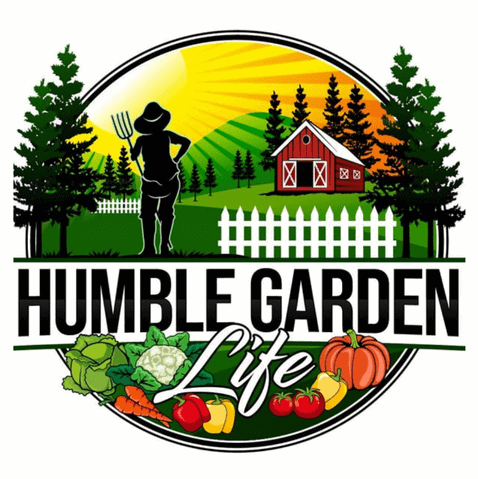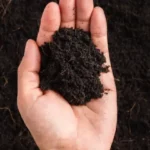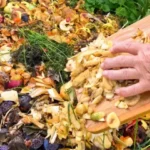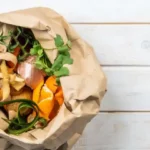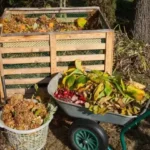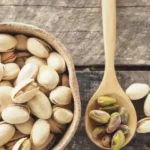After enjoying some fresh, sweet corn from the backyard garden, there are always the cobs and husks that remain. Instead of discarding them, one might ponder their potential uses. Any gardener passionate about sustainability would see the value in such organic waste, especially after a meal. In fact, they might even wonder, can you compost corn cobs and husks?
You can add corn husks and cobs to your compost. They’re carbon-rich, and the husks break down faster than the cobs. However, tear husk and chop corn cobs into smaller pieces for quicker decay. For better composting, layer the appropriate ratio of 3:1 brown (carbon) to green (nitrogen) materials, watering each layer before adding the next.
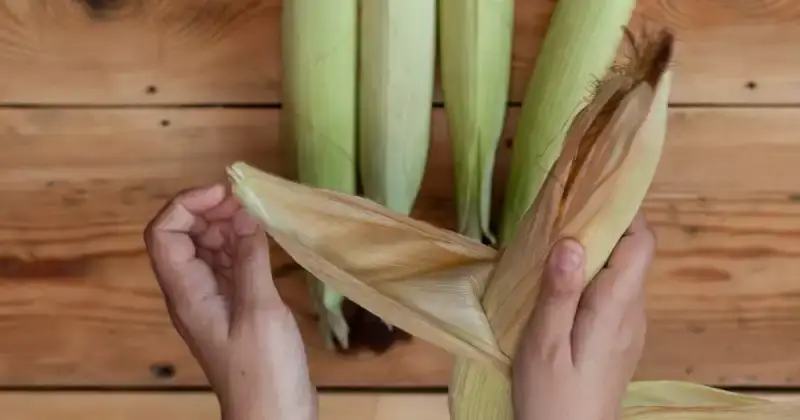
Let’s dive in as we unravel the art of adding cobs and corn husks to your compost mix, from a step-by-step starter’s guide to the detailed methods and factors affecting how long they decompose. Stay with me, and you’ll discover the secrets to sustainable gardening with every kernel of knowledge, thus turning waste into a treasure that enriches your soil and boosts your next harvest.
Humble Highlights
- Save time by discovering these 4 critical components of incorporating corn cobs and husks into your backyard compost pile appropriately – even if you’ve never added these valuable resources before!
- Explore the 5 vital factors affecting the decomposition rate in your compost heap so you can help speed up the process and add nutrient-dense mature humus to your garden in no time.
- Save money and reduce household waste by dropping corn cobs and husks in your compost, and why it’s crucial to separate the husks and silk to keep your pile balanced and working effectively and adequately!
The Non-Corny Steps To Compost Corn Husks And Cobs
Fortunately, adding husks and cobs to your compost pile can be a straightforward process. Follow these easy steps to compost these parts of the corn.
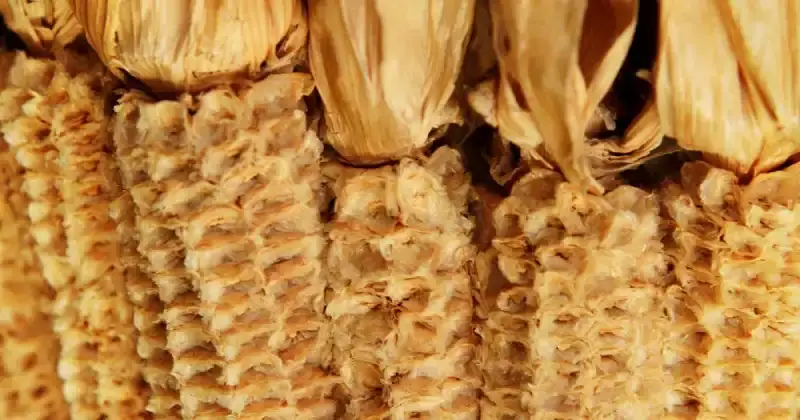
Cleaning And Smashing Cobs And Husks
Remove any leftover corn kernels and debris to prevent attracting pests, unsavory mold, and unpleasant odors during the composting process. You can do this by rinsing the cobs and husks under running water and using a brush to scrub any excess debris. 1
Break the cobs into halves or quarters and shred or tear the husks into smaller pieces, allowing them to break down faster within your compost heap.
Layering And Balancing Your Compost Pile: Green vs. Brown Compost Material
Choose a location for your compost heap if you don’t already have one, and prepare it by layering the bottom layer with twigs, branches, and shredded leaves, which helps aerate the pile from below while allowing better drainage from above.
To maintain balanced compost, alternate layers of brown (carbon-rich) materials like dried leaves, corn cobs, and husks with green compost materials (nitrogen-rich), including vegetable scraps, coffee grounds, or freshly cut and untreated grass. As mentioned above, keeping your ratio balanced of 3:1 carbon to nitrogen materials is essential so your pile decomposes correctly.
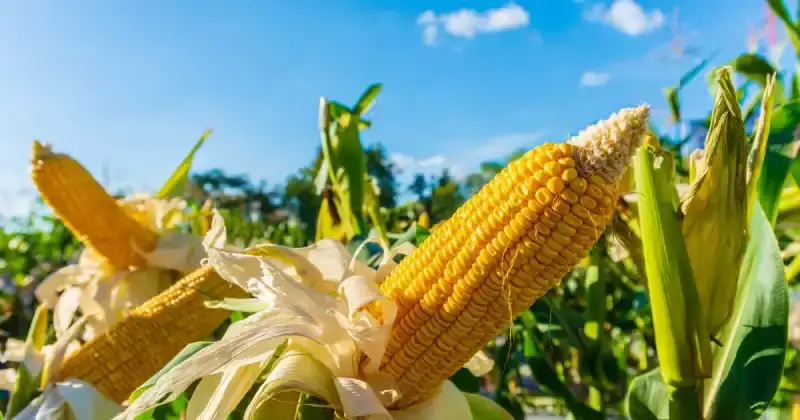
Fresh corn husks are high in nitrogen and are typically green. In contrast, dried husks are considered brown, as are corn cobs, ideal for balancing nitrogen-rich greens in compost piles. Be sure you understand what you add to your pile and the amount to keep your mix balanced and decomposing correctly.
Monitoring Moisture And Aeration
To maintain a healthy compost pile, keep it damp but not soggy. You may test the moisture level by squeezing a handful of material in a clenched fist. If water drips out between your fingers, the pile is wet enough. If no water comes out, add more water. If adhering to a hot composting method, turn your pile regularly every few days or about once a week using a garden fork or shovel, introducing fresh oxygen and ensuring even decomposition.
Harvesting Finished Compost
Mature compost, also called humus, is ready to use when it is dark, crumbly, and soil-like. The time it takes to mature depends on the size of the pile, moisture content, temperature, and the balance of greens and browns. It is best to wait until the compost has had time to break down completely before using it, meaning you don’t see any identifiable materials as you turn your heap. 2
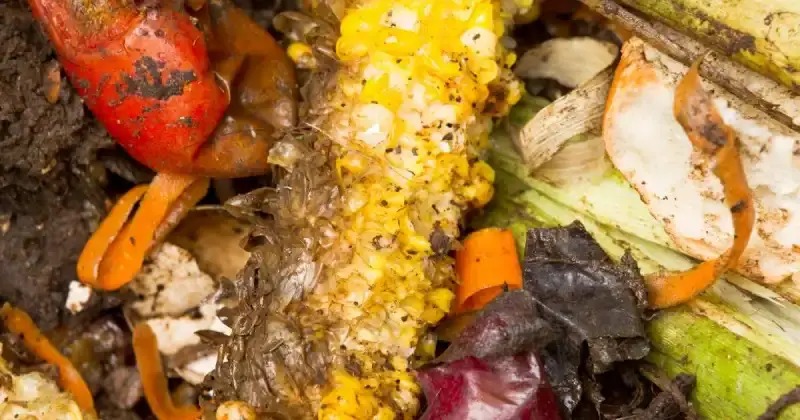
Corn Husk And Corn Cobs In Compost: Worth The Wait
Factors Affecting The Rate Of Decomposition
Several factors can speed up or slow down the process of composting corn. Let’s delve into what can influence how quickly these parts of the corn plant decompose within your backyard compost pile.
- Size and Surface Area: Coarse materials decompose more slowly than fine materials. Shredding or breaking down your corn husks speeds up decomposition considerably.
- Moisture Content: A compost pile that’s too dry will slow down microbial activity, while too much moisture can lead to anaerobic conditions and a heap devoid of sufficient oxygen. Both situations can result in a slowed decomposition and potentially smelly compost, attracting curious rodents and pests! 3
Anaerobic conditions refer to environments where oxygen is absent or in deficient concentrations. In such situations, biological processes occur through organisms that do not require oxygen.
- Temperature: The ideal temperature range for adding corn husks and corn cobs to the compost is between 60°F and 80°F (15°C to 27°C). Warmer temperatures accelerate the process, while cooler temperatures slow it down. However, if the pile’s temperature becomes too high, it can kill beneficial microorganisms, slowing the process.
- Presence of Inhibitory Substances: Corn cobs treated with chemicals can inhibit decomposition and harm beneficial organisms. It’s best to add nitrogen-rich (green) materials or enzymes to help potentially break down these chemicals faster or, better yet, leave them out of your compost heap entirely.
- Composting Method: The specific composting technique you employ (e.g., traditional composting, hot composting, cold composting, worm farming) can influence decomposition rates. Some methods, like hot composting, can break down materials within a few weeks or months, while cold composting can take nearly two years. 4
Whole corn cobs may take about 1-2 years to decompose in a typical backyard compost pile. In contrast, corn husks generally break down within a few months under optimal conditions due to their thinner composition.
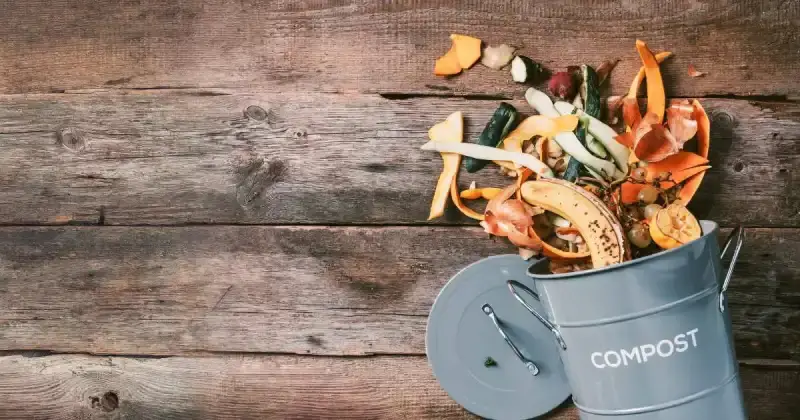
Corn Husks And Silk: Partners In Giving Back To Your Garden
Benefits Of Separating Corn Husks And Silk Before Composting
Corn husks and silk can be composted together, but separating them can help ensure a uniform decomposition rate in your pile while offering you more control over the composting process.
Why Separate Husks And Silk – Balancing The Pile
When separating corn husks and silk, creating a more balanced mix of nutrients is recommended for faster composting. Remember, corn silk provides nitrogen and fiber, which helps to aerate the compost pile and create an ideal environment for breaking down materials. 5
On the other hand, corn husks decompose at a slower rate, so separating them from the silk can expedite the overall process. In terms of brown and green materials, corn husks are considered brown and high in carbon, while corn silk is considered green and high in nitrogen. As previously mentioned, a successful compost pile should maintain a 3:1 ratio of brown to green materials to avoid issues moving forward.
Corn husks and silk work together to ensure the successful development of corn kernels. The husks provide protection, while the silk facilitates pollination, making both essential for the growth and reproduction of the corn plant.
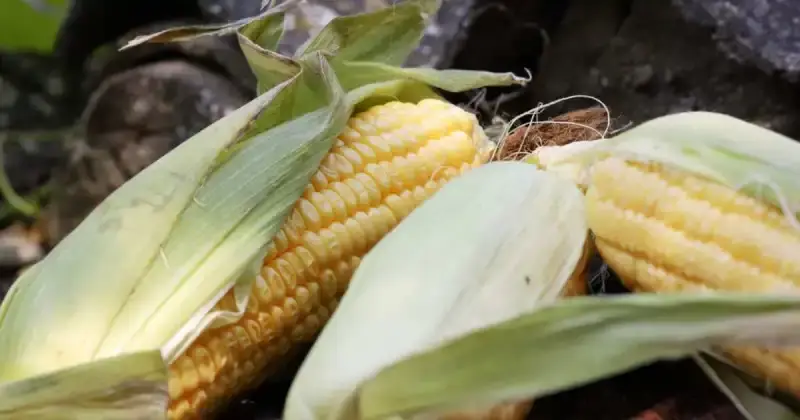
Composting Cooked Corn Cob And Husks
Potential Risks Of Composting Cooked Corn
Cooked corn cobs should be chopped or broken into smaller pieces before composting to speed up decomposition. It’s also suggested that food residue be removed before tossing the cobs into your compost to deter nosy pests looking for a free meal. To take this a step further, bury the cooked corn cobs within the center of your heap to mask any odors that may attract unwanted guests.
Corn husks can also be cooked in some recipes like tamales, for example, and can also be added to compost piles to provide carbon content and enhance the composting process. However, the cobs should be added in moderation and free of any food or grease. If you cannot clean the cobs effectively, especially of oils and grease, it’s better to discard them rather than run the risk they destabilize your compost pile. 6
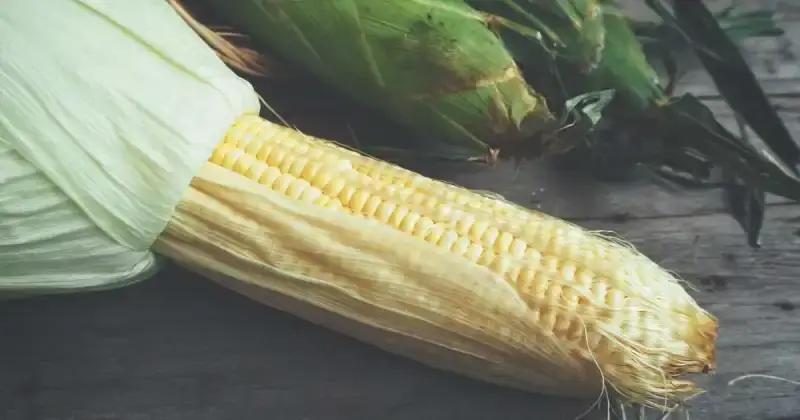
Reminders When Composting Cooked Corn Cob And Husks
- Clean the Corn: If the corn husks have residues of sauces, spices, or oily substances from various recipes, rinse them off before adding them to the compost. As mentioned above, this process helps prevent attracting unwanted pests and rodents.
- Shred the Husks and Break the Cobs: Using a shredder or scissors, cut the husks into smaller pieces or break the cobs with your hands. This decreases their surface area, making it easier for microbes to break them down during decomposition.
- Pest Management: If you want to protect husks and cobs from pests and rodents, use a compost bin with a tight-fitting lid or bury food scraps, including corn husks and cobs, in the center of the compost pile to mask any odors and where the heat is highest.
Putting corn stalks and husks in your compost makes excellent sense when growing your food. Not only do you reduce household waste, but you add plentiful nitrogen and carbon to your compost. This short video explains the simple process of prepping corn cobs and husks before adding them to your heap.
Other Methods In Composting Corn Cobs And Husk
Composting isn’t just about throwing organic waste like cobs and corn husks to the compost pile and waiting. There are several effective methods to get the job done. We will review a quick run-through of the methods since this is a complex topic while exploring these methods further in additional articles.
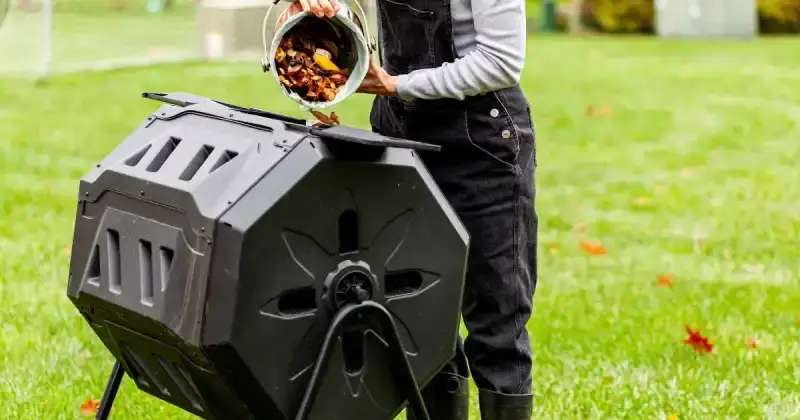
- Tumbler composting: This method uses a rotating barrel or drum to mix and aerate organic material, is easy to use, and can produce compost relatively quickly so long as you have the correct balance of carbon and nitrogen materials.
- Bokashi Composting: This fast, meat-and-dairy-friendly composting method uses bran to ferment food scraps in a sealed container. You can bury the fermented material in the garden and allow it to work its magic on your crops.
- Vermicomposting (Worm Composting): This composting type uses worms to break down organic matter into worm castings, a nutrient-rich fertilizer suitable for indoor or small-space composting. 7
- Hot composting: One of the more common techniques, this method involves creating a compost pile with a balanced mixture of nitrogen and carbon, with the gardener turning the pile regularly, allowing quick decomposition through heat. It’s a faster process but requires a lot of attention and monitoring.
Each composting method has its unique benefits and considerations. The best way to compost corn cobs and husks will depend on individual preferences, available resources, regional temperatures, and your pile’s size and specific needs.
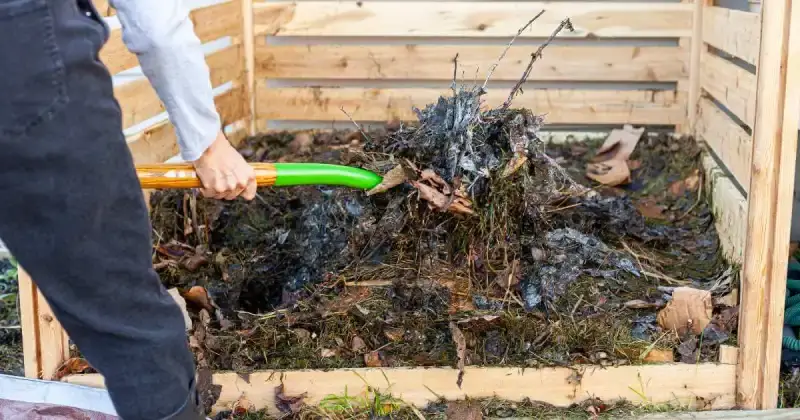
Alternative Use Of Corn Cobs And Husks
Corn cobs and husks might seem like simple leftovers from our meals, but they have much to offer beyond composting. Here’s a closer look at other ways to responsibly dispose of corn parts.
- Smoking Meat: Once soaked in water, cobs and dried corn husks can be used to add to a smoker or grill, imparting a mild, sweet flavor to meats.
- Fuel/Fire Starters: Husks and dried corn cobs are excellent biofuels that burn hot and produce less ash than wood. Soaked in wax, they make natural fire starters.
- Mulch: Corn cobs can be shredded to create mulch for gardens, while corn husks can be used as a natural mulch around plants to retain soil moisture and help suppress weeds.
- Crafts and Decor: Corn husks and corn cobs can also add purpose to the making of natural jewelry, sculptures, dolls, wreaths, baskets, mats, and ornaments. 8
- Animal Feed: Corn cobs can be safely combined with husks as a healthy source of fiber and nutrients for livestock, helping to keep their digestive systems healthy.
- Animal Bedding: Corn cobs can be used with ground corn husks as absorbent, insulating animal bedding.
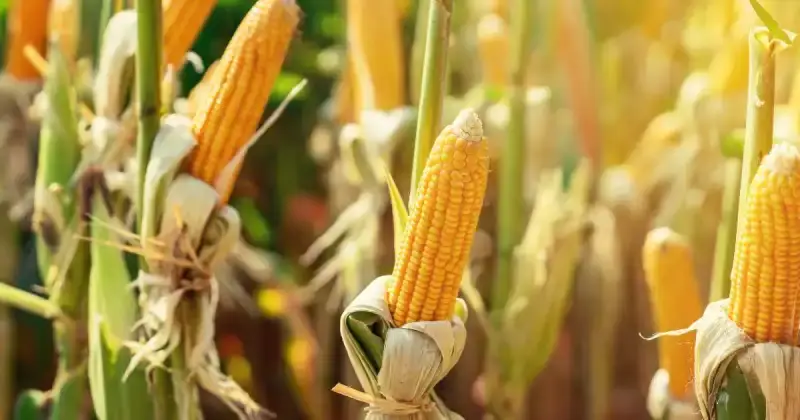
Conclusion
In our journey through sustainable gardening, we’ve discovered the immense potential of corn cobs and husks for your backyard garden. These often-discarded remnants can be effectively composted along with their husks.
Although the cobs may require a bit more time to decompose, by understanding the proper composting techniques, from shredding the husks to balancing your carbon and nitrogen layers, you can quickly transform these leftovers into nutrient-rich fertilizer for your garden.
Beyond composting, corn cobs and husks have versatile uses, from smoking meats to crafting, emphasizing their value in our sustainable living practices. Today is the perfect day to embrace composting and make the most of every husk and corn cob for your next compost endeavor!
Do you currently compost corn cobs and their husks in your backyard compost? We’d love to know your story and how you do so successfully. Take a moment and drop us a line in the comments section below!
SOURCES
- National Library Of Medicine, National Center For Biotechnology Information – Effects Of Temperature Treatment On Corn Cob Composting And Reducing Of Composting Time: A Comparative Study
- United States Environmental Protection Agency – Composting At Home
- Oklahoma State University, Extension – Compost Turning: The Key To Quick Composting
- Texas A&M University, Extension – Chapter 1, The Decomposition Process
- University Of Missouri, Extension – Making And Using Compost
- Wikipedia – Maize
- SpringerLink – Vermicompost Significantly Affects Plant Growth. A Meta-Analysis
- ScienceDirect – Advances And Prospects Of Corn Husk As A Sustainable Material In Composites And Other Technical Applications
